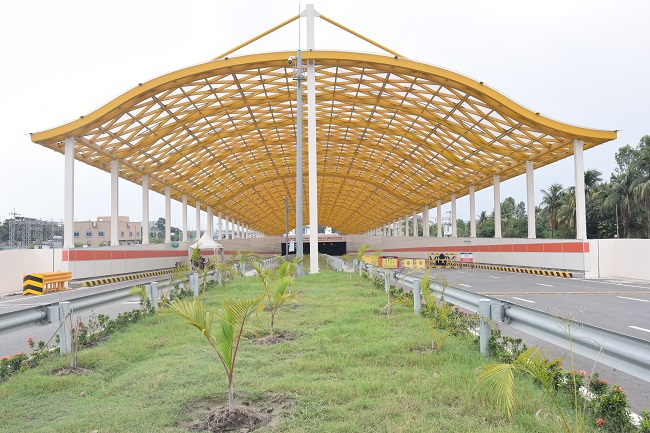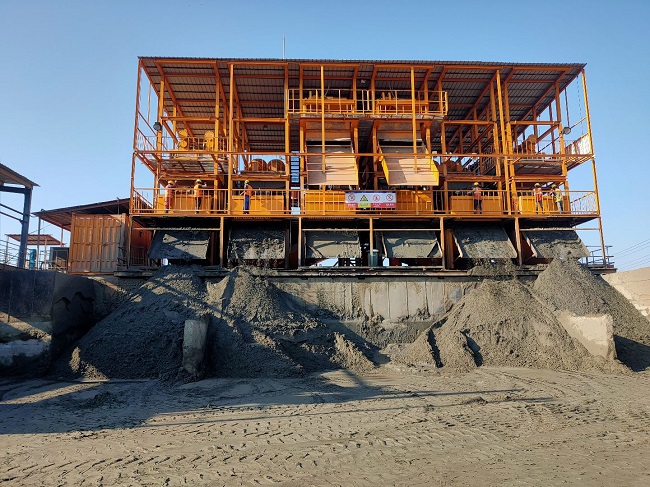Recycling techniques facilitate environmental protection of Karnaphuli River

Throughout tunnel construction, drilling underground inevitably generates large amounts of sludge and residue. The simplest and most cost-effective way to dispose of these by-products is to find a nearby area to serve as a disposal site. However, this process risks polluting the roads, and toxic substances can have an unpredictable and destructive effect on the environment.

Since the beginning of the project's construction, the constructors of the China Communications Construction Company (CCCC) in the tunnel construction project at the bottom of the Karnaphuli River in Bangladesh have made environmental protection a priority. Transporting waste off-site has never been an option, and so, how to deal with the 428,800 tons of sludge and residue became a great challenge for them.
In January 2019, the company started its innovative journey of recycling this waste.
After analysis, laboratory technicians found that the main components of the sludge and residue were water, bentonite, clay, and a small amount of sand. This exciting find led to the applicable disposal method for the team: extracting bentonite from sludge and residue. As the large quantity of bentonite required in the excavation process of tunnel boring machines, this method was expected to not only help save costs but also solve the pollution problem.
However, the composition ratio of bentonite and mortar must strictly adhere to set standards. It was unknown whether the quality of these materials from recycled sludge and residue would be qualified.
Therefore, the project team launched a new round of technological innovation: to ensure the experimental data of the on-site performance of recycled materials to completely meet the requirements.

The laboratory team spent 20 consecutive days working on the solution. Eventually, they found the appropriate additive ratio and successfully achieved the goal of remaking the recycled materials.
Moreover, in order to tackle the problem of the changing ratio of the waste to be added additive and recycled, the team equipped the mixing tank in the mud-water station to store the sludge and residue. After adjusting the additive ratio of the waste in the tank according to the composition, the recycled materials eventually met construction requirements.
Since then, the waste sludge and residue generated from each rotation of the tunnel boring machine have been given new life by the project team.
In the tunnel construction of the Karnaphuli River, comprehensive recycling techniques have demonstrated enormous potential. This is not only a significant technological breakthrough but also a great leap forward in environmental awareness.











.png)
.png)
.png)





